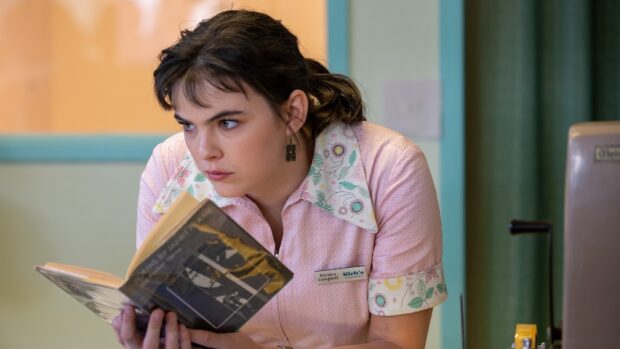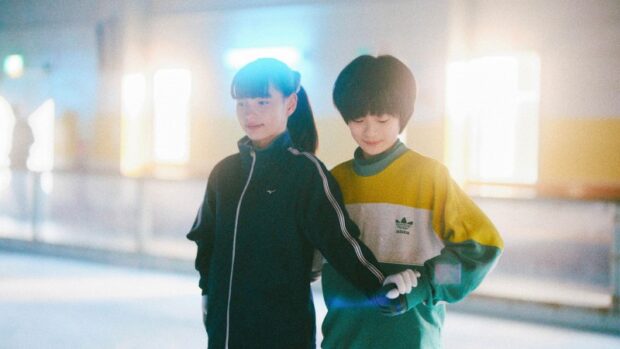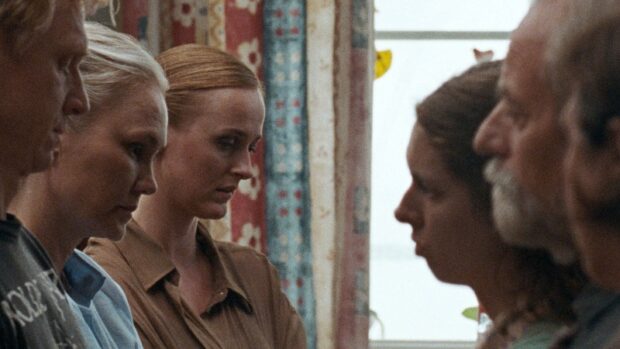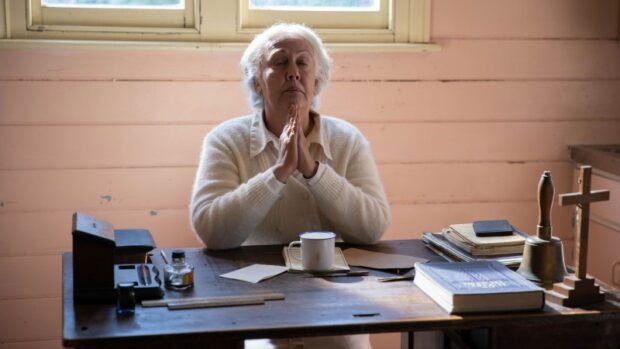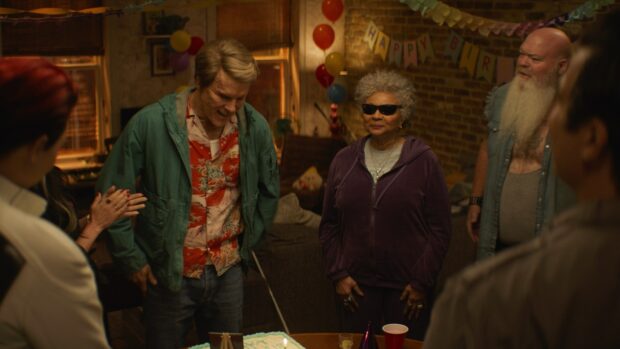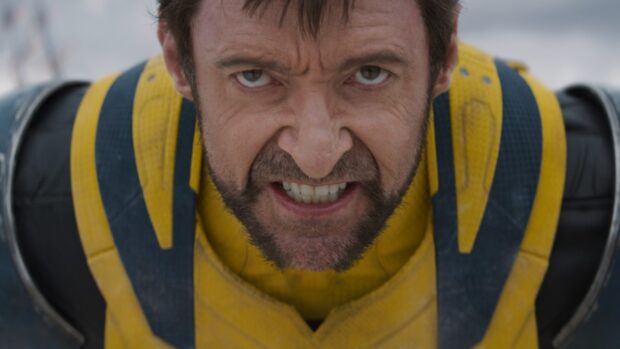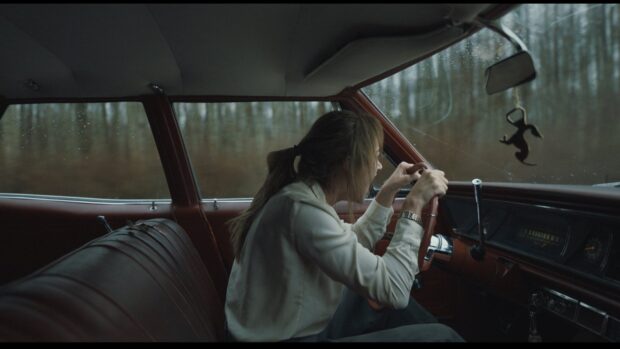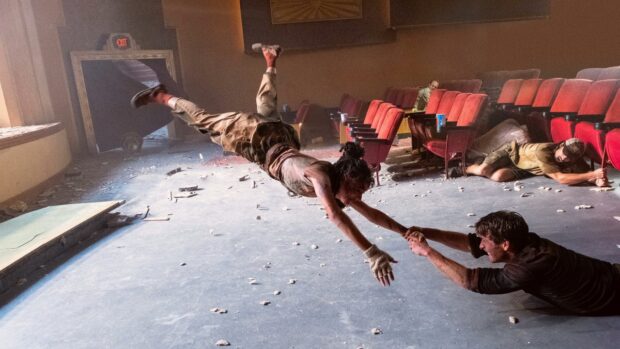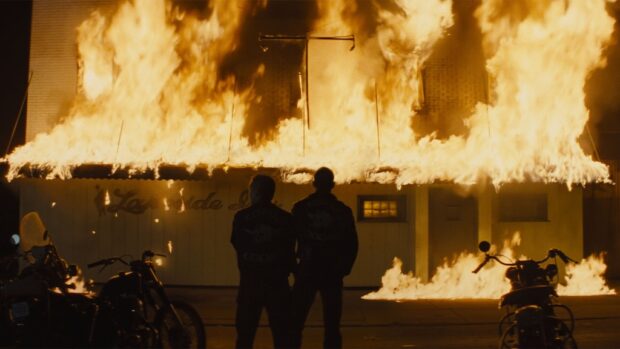Saturday Night Live has had a chequered history with the big screen. At SNL’s 25th anniversary bash, host Chris Rock quipped, “Some of the worst films ever made were made by people in this room. Thank God we’re all going to do what we do best: television.”
Now, as the show celebrates its 50th season, director Jason Reitman goes back to the beginning to make a film about the making of a TV show. Like the show it depicts, it’s chaos on wheels—full of manic energy, with as many misses as hits. Still, it’s hard not to smile at the antics.
In the film’s reality, it’s 11 October 1975, and Lorne Michaels (Gabriel LaBelle) is stressed. His talent is openly rebelling, network boss David Tebet (Willem Dafoe) is breathing down his neck, and the jaded crew don’t believe in what he’s doing. Scripts are unfinished, threats are flying, and there’s already been at least one fire. They go live in 90 minutes.
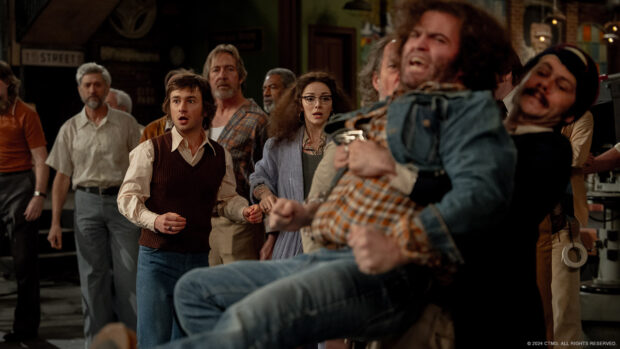
The film moves at a breakneck pace, unfolding almost in real time as the countdown to the live show ticks away. Reitman and co-writer Gil Kenan scramble to cover all angles, capturing the frenzied energy of those final moments. Like an actual episode of SNL, some of it hits, and some of it misses, but that’s part of the charm. The controlled chaos is woven into the narrative, reflecting the unpredictable nature of live television.
There’s a fair bit of mythologising here. For every self-effacing quip, we’re reminded that this is misunderstood genius waiting to be discovered. Did Milton Berle (J.K. Simmons) really pull out his dick to humiliate Chevy Chase (Cory Michael Smith)? It hardly matters because it works for the scene and feels true. Speaking of dicks, Chase is depicted as a relentless one, a smug egotist only interested in his own career. Another reminder that it’s all based on a true story.
It’s also clear that Reitman and Kenan wanted to squeeze in countless stories, but there’s simply not enough time. There are nods to sketches yet to come (like Dan Aykroyd’s bloody Julia Child routine) and hints at tensions that will later erupt into actual fistfights.
Other threads feel like they deserve their own series but are barely explored. Jane Curtin (Kim Matula), Gilda Radner (Ella Hunt), and especially Garrett Morris (Lamorne Morris) seem undervalued here, with Kenan and Reitman unintentionally sidelining them. The film has been criticised for its lack of focus on the female performers—but perhaps that’s reflective of the era.
Still, the cast make it work. Dylan O’Brien, Matt Wood, and Smith are uncanny as Aykroyd, John Belushi, and Chase. Nicholas Braun pulls double duty as Andy Kaufman and Jim Henson, and Rachel Sennott shines as unsung comedy hero Rosie Shuster.
Whether you’re a devotee of the show or just enjoy watching the craft of comedy come together, Saturday Night is a grounded love letter from Reitman to the performers he grew up with. And live from New York—it’s Saturday Night!
2024 | USA | DIRECTOR: Jason Reitman | WRITERS: Gil Kenan, Jason Reitman | CAST: Gabriel LaBelle, Rachel Sennott, Cory Michael Smith, Ella Hunt, Dylan O’Brien, Emily Fairn, Matt Wood, Lamorne Morris, Kim Matula, Finn Wolfhard | DISTRIBUTOR: Sony Pictures Releasing | RUNNING TIME: 109 minutes | RELEASE DATE: 27 September 2024 (USA), 31 October 2024 (Australia)


